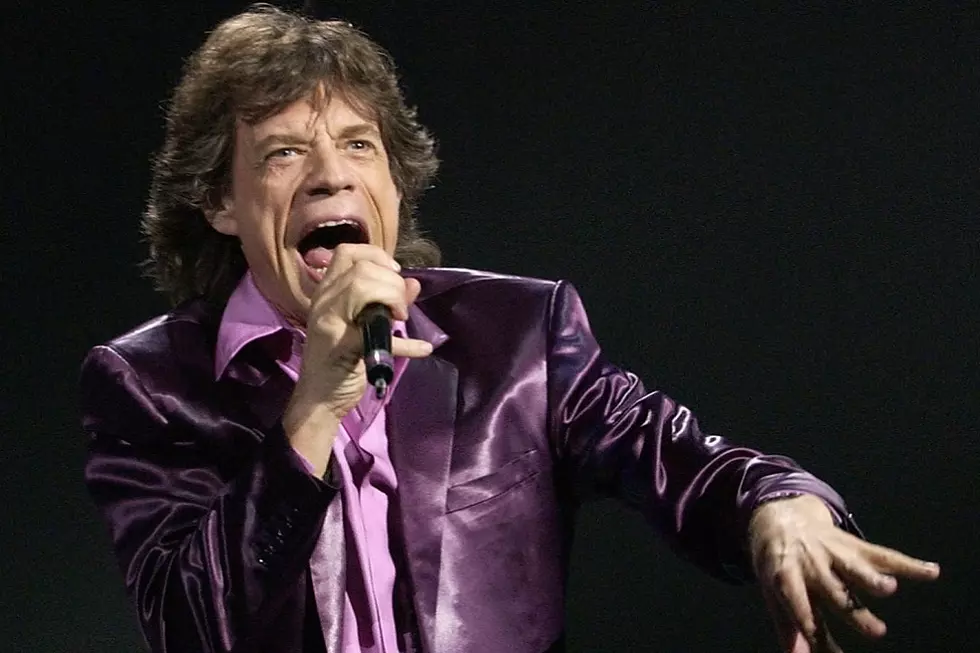
The Day the Rolling Stones Played Their First Show in China
It took them decades of trying — and getting past a bout of bird flu — but on April 8, 2006, the Rolling Stones played their first-ever show in China.
The concert, which took place in Shanghai at the 8,000-seat Grand Stage theater, had to overcome more than a few hurdles. Most interestingly — at least as far as the international press was concerned — the group was forced to cut a handful of songs from its set list. The lyrics to "Brown Sugar," "Beast of Burden," "Let's Spend the Night Together," "Honky Tonk Women" and "Rough Justice" raised red flags with the country's Ministry of Culture for one reason or another, and the Stones were forbidden from playing them.
While the preemptive censorship might have made headlines, it was nothing new for the band members, who had already agreed to cut several offending songs during their earlier planned visit to China in 2003. That show had to be canceled because of the SARS crisis, but not much had changed by 2006 — the only difference was "Rough Justice," which had been added to the set list after debuting on their 2005 LP A Bigger Bang.
At a press conference promoting their arrival in Shanghai, the band joked about the changes to the set, with singer Mick Jagger drolly noting that they had hundreds of other songs to choose from and quipping, "I am pleased the Ministry of Culture is protecting the morals of expatriate bankers and their girlfriends." Guitarist Keith Richards added that the band might go ahead and perform instrumental versions in order to "give Mick a break."
Ironically, as many press outlets noted, high ticket prices kept many Chinese citizens from attending the show, and some reports estimated that more than 80 percent of the crowd ended up coming in from other countries. While the show went off without a hitch — and the Stones consented to be censored again during their return visit in 2014 — the cultural questions their visit raised weren't so easily untangled.
"For most Chinese rock 'n' roll fans, the Rolling Stones are not even as attractive as a domestic pop singer, or the [TV singing competition] contestants," a Chinese blogger told the New York Times at the time. "In the eyes of fans, the Rolling Stones have more meaning as a rock 'n' roll symbol than as a kind of music. They are as unfamiliar as they are familiar."
Yet if the Stones meant more as a symbol than a band, their arrival in China still held significance for a nation that turned to the group's records when rock was being smuggled into the country decades before. And while the censorship issue proved the government still had a long way to go in terms of allowing freedom of expression, even an overpriced concert full of foreigners can sometimes signal a certain type of progress. As the Stones demonstrated again years later with their first-ever show in Cuba, rock 'n' roll remains uniquely qualified to establish cultural beachheads.
"It's not the big shows that will spread rock in China," concert promoter Jon Campbell told USA Today. "We need younger bands to tour here, a continued effort at club level and better infrastructure, more venues, instruments and record labels."
And for Cui Jian, the Chinese rock pioneer who opened the show and shared the stage with the Stones during their Shanghai performance of "Wild Horses," the concert was nothing less than a milestone. "More people are playing rock now," he told the paper. "One day culture in China will be opened up. It will change suddenly."
See the Rolling Stones Among Rock’s Strangest Deaths
You Think You Know the Rolling Stones?
More From Ultimate Classic Rock









